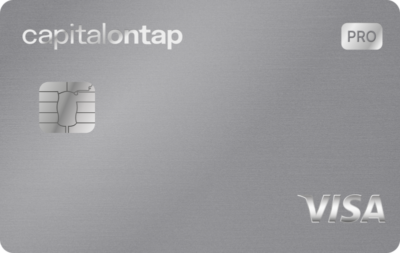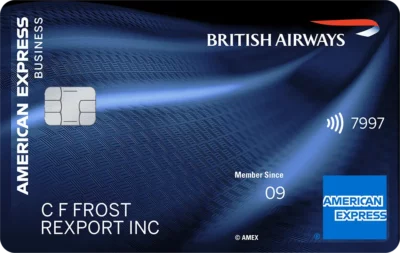Curve Card launches legal action against American Express
Links on Head for Points may support the site by paying a commission. See here for all partner links.
According to an article in The Daily Telegraph yesterday, Curve Card is going through with its threat to sue American Express for withdrawing its support in January with no notice.
The report says that Curve is seeking damages for the ‘millions of pounds’ spent on fees and development work for the project to integrate American Express into the Curve platform.
Curve has also said that it is filing a complaint with the Payment Systems Regulator. To quote:
“We have a very large set of investors and we have a lot of money in our war chest”, [Curve CEO] Mr Bialick said. “When someone is actively trying to kill you, that means you are disrupting the model.”

Amex supplied the Telegraph with the same quote they gave to me back in January:
“American Express participated in a limited Curve beta test where we enabled a small number of Card Members to load funds onto an e-wallet using their Amex Card in the Curve app. We informed Curve that we would not participate in the further roll out of the Curve e-wallet, prior to them launching the product. We do not have regulatory obligations to work with a particular partner, and we can confirm that we have terminated our agreement with Curve.”
This is a tricky one to call. For most businesses, the ability to accept payment cards is a pre-requisite to their survival so card companies should arguably not be allowed to discriminate over who they work with. On the other hand, you can understand that Amex, Mastercard and Visa would want the ability to stop their logos being associated with stores or websites selling certain products.
Credit card companies also share legal liability for products purchased using their cards so they must be allowed to have the flexibility to only work with merchants whose finances and products are seen as reliable. This was not an issue with Curve transactions, however, as the legal liability sat with Curve / Mastercard and not American Express or whichever other card your Curve was linked to.
Curve is still pushing forward
Curve is not going anywhere in a hurry, it seems, despite the huge setback with Amex. Over the last couple of weeks it has announced plans to open offices in Italy, Germany, France, Spain, Portugal and Poland (country managers are currently being hired if you’re interested). As Amex has a lower penetration in these markets, the lack of Amex functionality is likely to be less of an issue.
It has also launched ‘Faster Purchase Protection’ for transactions of up to £100,000. This ensures that all claims for refunds against purchases made on Curve are dealth with within one day of receipt of the requested documentation. You are covered when the goods or services were not received, defective or not as described. It also covers eligible purchases in the event that the goods prove to be counterfeit or when a promised refund is not completed.
It is worth noting that this covers debit and credit card purchases, which makes it more generous than Section 75 coverage in the UK which only covers credit card purchases. There is also no minimum purchase threshold, whereas Section 75 protection only kicks in if you spend over £100.
Does Curve still have value to HfP readers without Amex as a partner?
Yes it does, basically. Arguably the free card should be in your wallet, linked to another points earning Visa or Mastercard:
you can spend £500 per month abroad Monday to Friday without incurring any FX fees (0.5% fee at weekends) and have the transaction recharged your points-earning Visa or Mastercard in Sterling
you can withdraw £200 per month via an ATM and have it charged to your underlying points-earning Visa or Mastercard as a purchase (EXCEPT for Tesco Bank and NatWest / RBS cards)
If you pay HMRC, you should also know that payments to HMRC via Curve are still accepted. It is treated as a debit card but goes through as a purchase on your underlying Visa or Mastercard.
If you’ve never tried Curve, simply go to this page of their website to download the app.
Curve will pay you £10 for trying it out if you use our link.
Can Curve beat Amex?
I’m not sure if the Curve lawsuit against American Express will get very far. I’d like to think it would, but the situations under which you can legally force a company to do business with another company are few and far between, although they do exist.
That said, strip away all of the noise caused in the last three months by the sudden collapse of the Curve / Amex relationship and you are still left with a product which has some use in the arsenal of the average miles and points collector.
Be clear, though. There is a shake-up coming, with little hope that Curve, Monese, Revolut, Starling, Monzo, N26 and Atom will all survive as independent fintech businesses. I’m not sure if Curve is less at risk – because it is at least offering something different whilst Revolut etc are just offering plain vanilla banking with pretty-coloured plastic cards – or more so.
PS. If you are not a regular Head for Points visitor, why not sign up for our FREE weekly or daily newsletters? They are full of the latest Avios, airline, hotel and credit card points news and will help you travel better. To join our 70,000 free subscribers, click the button below or visit this page of the site to find out more. Thank you.

Want to earn more points from credit cards? – July 2025 update
If you are looking to apply for a new credit card, here are our top recommendations based on the current sign-up bonuses.
In 2022, Barclaycard launched two exciting new Barclaycard Avios Mastercard cards with a bonus of up to 25,000 Avios. You can apply here.
You qualify for the bonus on these cards even if you have a British Airways American Express card:

Barclaycard Avios Plus Mastercard
Get 25,000 Avios for signing up and an upgrade voucher at £10,000 Read our full review

Barclaycard Avios Mastercard
Get 5,000 Avios for signing up and an upgrade voucher at £20,000 Read our full review
You can see our full directory of all UK cards which earn airline or hotel points here. Here are the best of the other deals currently available.
SPECIAL OFFER: Until 15th July 2025, the sign-up bonus on the Marriott Bonvoy American Express Card is TRIPLED to 60,000 Marriott Bonvoy points. This would convert into 25,000 Avios or into 40 other airline schemes. It would also get you at least £300 of Marriott hotel stays based on our 0.5p per point low-end valuation. Other T&C apply and remain unchanged. Click here for our full card review and click here to apply.
SPECIAL OFFER: Until 14th August 2025, the sign-up bonus on the Hilton Honors Plus debit card is TRIPLED to 30,000 Hilton Honors points. You will also receive Gold Elite status in Hilton Honors for as long as you hold the card. Click here for our full card review and click here to apply.

American Express Preferred Rewards Gold Credit Card
Your best beginner’s card – 20,000 points, FREE for a year & four airport lounge passes Read our full review

British Airways American Express Premium Plus Card
30,000 Avios and the famous annual Companion Voucher voucher Read our full review

The Platinum Card from American Express
50,000 bonus points and great travel benefits – for a large fee Read our full review

Virgin Atlantic Reward+ Mastercard
18,000 bonus points and 1.5 points for every £1 you spend Read our full review
Earning miles and points from small business cards
If you are a sole trader or run a small company, you may also want to check out these offers:

The American Express Business Platinum Card
50,000 points when you sign-up and an annual £200 Amex Travel credit Read our full review

The American Express Business Gold Card
20,000 points sign-up bonus and FREE for a year Read our full review

Capital on Tap Pro Visa
10,500 points (=10,500 Avios) plus good benefits Read our full review

Capital on Tap Visa
NO annual fee, NO FX fees and points worth 0.8 Avios per £1 Read our full review

British Airways American Express Accelerating Business Card
30,000 Avios sign-up bonus – plus annual bonuses of up to 30,000 Avios Read our full review



 Rob
Rob 





Comments (223)